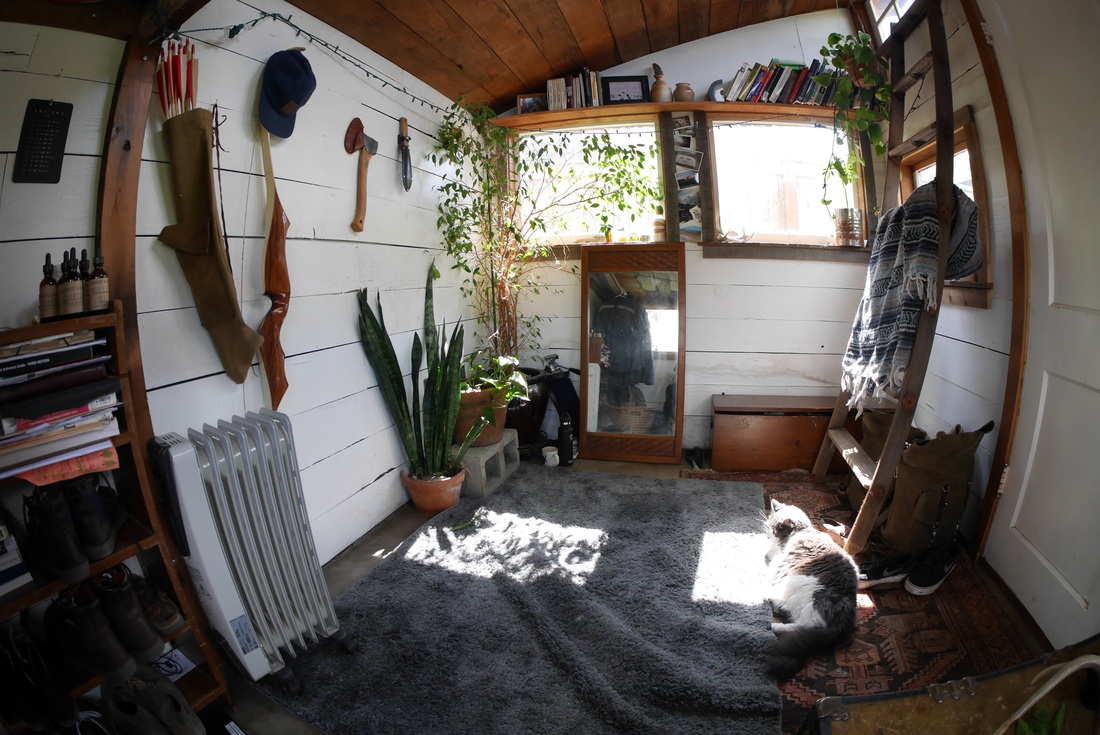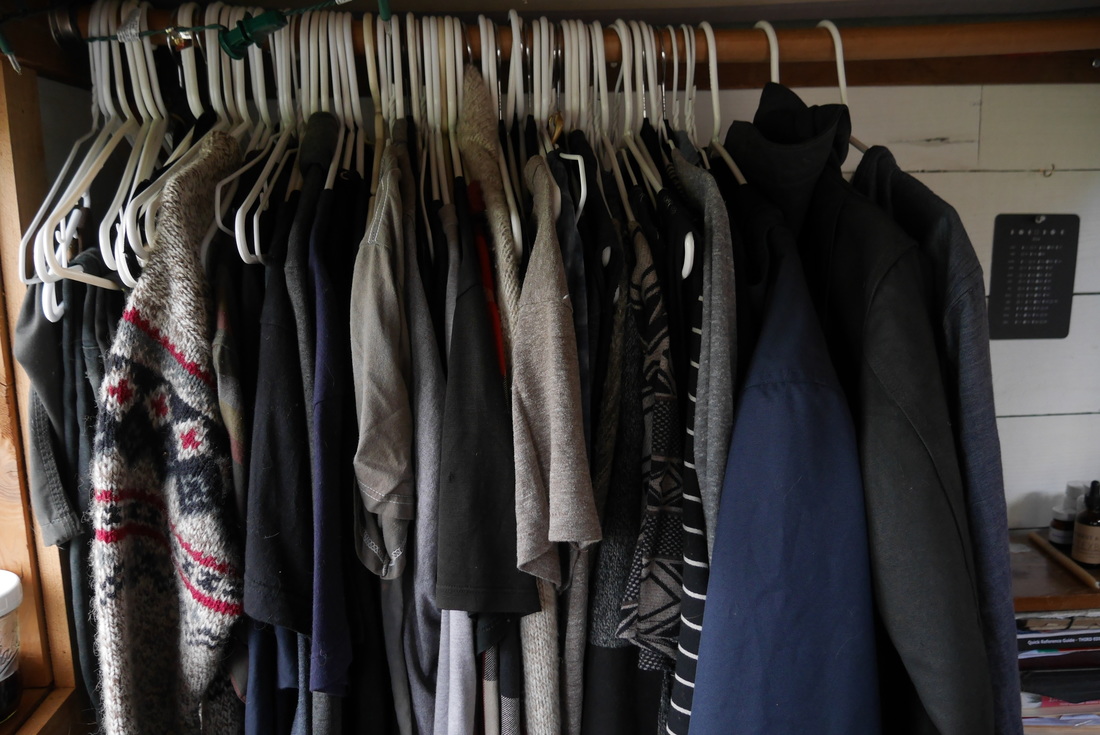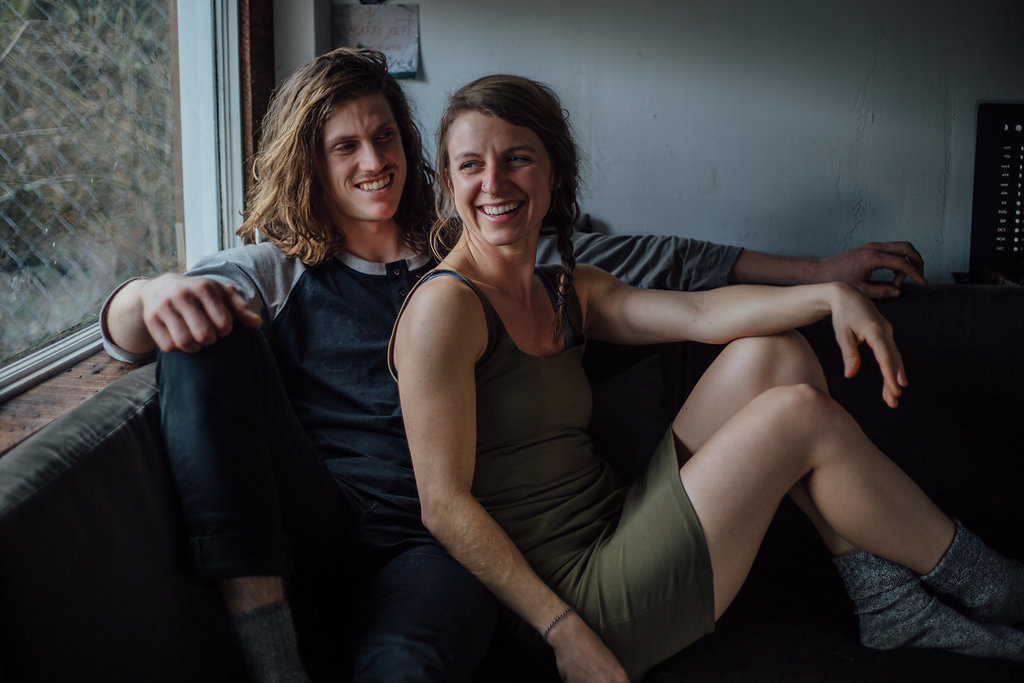|
The following is the second part of an ongoing story. Part one, can be found HERE. For the first four years of our marriage, Bailey and I were considered by the government to be “living in poverty.” At the time of writing, the poverty line in our country is $16,020 for a couple. Throughout those first years of marriage, our income was comfortably within this limit. Despite that fact, our situation felt far from impoverished. The reasons for this are the ones you could likely guess. As a white heterosexual couple in good health, both with a loving, supportive family and community, we were far from struggling. I only mention this to give the reader an idea of our financial history. As I described in part one of this story, this situation was a direct result of our approach to money. Our first step in a different direction: toward our goals, was building our credit. The next step was to get serious about saving money. Saving money is a lot like going on a diet. Being in the business of diets, Bailey is familiar with the process. The first step for anyone seeking her help is to fill out a Nutritional Assessment Questionnaire. This form helps Bailey understand her client’s current status. It helps to remove the guesswork involved in providing helpful recommendations. Saving money is simply going on a financial diet. The process begins the same way. Starting today, find a way to document every cent you spend for the next thirty days. There are apps now that can help you with this, Mint being the one of which I have heard. I have always relied on good old-fashioned paper and pen. I carry this in my backpack or wallet. I suggest you track your income as well. Thirty days later, some simple math will provide you with what, I would argue, will your best tool for moving forward. This will act as your financial assessment questionnaire. You’ll now be making decisions based on real data. Being a naturally analytical person and a compulsive list maker, this is a fun project for me. I don’t expect everyone to relate. When I first completed this task, I broke down our spending into categories. The specific categories are only important inasmuch as they reflect your individual spending habits. Once I had our totals I was able to work through each category one at a time. My aim was to brainstorm ways that I could reduce or eliminate our spending within each category. Some categories require much more creativity than others. What gets measured, gets managed. I’ll refrain from making a list of all the possible ways a person could save money. Those lists can be found elsewhere. Instead, I’ll explain how we approached it. I’ll work toward emphasizing principles over specific tactics. The two sides of dieting are cutting out unhealthy foods and adding in healthy ones. The two sides of a financial diet are spending less and earning more. The best approach generally incorporates both. For us, earning more was the most helpful. It was also quite easy. After years of working odd jobs, a regular paycheck felt like winning the lottery. Had we not made a single change to our spending, we would have saved a fair amount. It required some creativity to cut our spending even further. Though not an obvious place to start, the first step we took was eliminating our rent. I had originally passed over this category in my brainstorming. I assumed paying rent was non-negotiable. Because we live in a house owned by my parents, we were able to explore some other options. Over the course of a couple months we converted the shed in our backyard into a cozy living space. The goats were living in it at the time, but they were happy to move out. Most of the materials being salvaged, the entire project cost us $700. The bedrooms in the house are rented for an amount sufficient to cover that which my parents require. We are left paying only our portion of the utilities. We’ve now lived in our backyard bedroom for over two years. Pictured below is the interior of that abode. It 8'x12' in size. Another category, to which a large portion of our spending is dedicated, is food. Food is, for us, the foundation of all that we do. Hence, we make few compromises in this area. Our spending in this category tends to be upwards of $800 a month. I include in that figure all of our food and beverages, whether consumed in or out of the house. We know firsthand the benefits of eating well. Shortly after we returned from two months in South Africa, Bailey developed serious environmental allergies. Some days would find her on the couch; exhausted, sneezing, nose running, her eyes itching and watery. Today she is 95% allergy free. This is a direct result of changes made to her diet. You can read more about that HERE. One unforeseen benefit of Bailey’s allergies was the forced elimination of alcohol from our routine. At the time, a few sips of alcohol would be enough to put Bailey in to the state I just described. Though we have never been heavy drinkers, consumption of alcohol is now a rare event for us. Eating out is another thing we seldom do. The scope of our diet limits us to less than a handful of restaurants to choose from. Additionally, the improved mental clarity, emotional stability, and physical energy gained from eating well make it worth every penny. Despite our lack of willingness to compromise, we have made some effort to save money in this regard. Almost a year ago, we learned a number of helpful things from an experiment with eating well on a limited budget. The details of that experiment can be found HERE. The remainder of our spending breaks down into much smaller categories. Though we haven’t made many drastic changes to our spending in these areas, we have continued in the habits formed during the earliest years of our marriage. I’ll make short mention of a few of them. Clothing Those who know me now might be shocked to find out that I won “Best Dressed” in my high school class. Today, I give little thought to the way I dress. Our closet is fairly minimal. The majority of our clothes are some shade of grey or navy blue. This dramatically simplifies picking out an outfit. The only clothes in our closet that have come to us unworn by a previous owner are socks, underwear, shoes, and those given to us. Any shopping we do takes place at second hand stores. I have begun to entertain the idea of dressing nicer than I do. I may experiment with this and write about it at a later date. The photo below is the extent of our closet. Transportation
Living in the city, we have the privilege of using a bicycle as our primary form of transportation. The first three years of our marriage were spent entirely without a car. Bailey’s parents gave us the car we now drive. We are careful to maintain it mechanically, in hopes that it will serve us for many years. We are less concerned about it aesthetically. The driver’s side quarter panel has been hit twice and left unrepaired, putting an extra $2500 into our pocket. Miscellaneous Having shared a home with almost thirty different people, we have spared many an expense in furnishing that home. The house we live in is generally in disrepair and quite shabby in many respects. This has limited us to selecting roommates from certain subcultures. Maintaining a neat, curated space has not been high on the list of priorities for our housemates. In general, we have made an effort to replace spending with skills. I have learned how to repair our car, appliances, electronics, clothing, and tools. Bailey has become a skilled cook, preparing almost all of our meals from scratch. She also makes much of what would be found in our medicine cabinet, if we had one. The backpacks we took with us to South Africa, we made from material found by a friend of ours in a dumpster. We try to look at every expense as an opportunity for learning a new skill. A reduction in spending is the primary focus of most content related to saving money. For many, this is the area that offers the most room for improvement. Being well versed in frugality, earning more was the primary thing that tipped the scales in our favor. In addition to finding regular employment, we sought out other ways to bring in more money. Bailey added part time work as a nanny to her schedule. I have occasionally taken on side work similar to that which I did before working at the café. It was the recognition of a significant opportunity that gave us the final boost we needed to get our loan preapproval. It our search for land, we met with a number of real estate agents. A friend reminded me of an agent that I met a few years prior. His skill set includes knowledge of small-scale agriculture and experience in assisting with the purchase and sale of real estate. This made him my number one pick. Unfortunately, I found out he had moved out of the state. We met with a woman whom he recommended. That sparked my curiosity regarding the steps involved to obtain one’s real estate license. Six weeks later, I was a licensed real estate broker. A woman who is a longtime regular at the café acts as my supervisor, that being a requirement of the state of Oregon. A prominent factor in my decision was the fact that my Grandma had long been planning to sell her home. The house is located in a highly desirable neighborhood in one of the fastest growing cities in the country. I’m referring to Southeast Portland. I was able to act as the listing agent for her house. The commission I earned from the sale was a substantial sum to us, and less than she would have paid any other agent. Every story of success involves some amount of luck. Critics are rarely hesitant to point out these elements. I believe this is often an attempt to excuse themselves of putting in the time and effort required to succeed. It is sometimes a justification of apathy and laziness. I freely admit that luck has played a role in our story. In part three, I’ll expand on this idea. I’ll also shed some light on the other important ideas that have been a great help to us. -Johnny Read part three HERE.
3 Comments
4/6/2016 09:29:07 am
I have been following Bailey for a year or two now and I am always inspired what I read and see. My husband and I are on a very similar path as you two are, so we enjoy watching your journey. We live up in Washington. These posts on finances are great! I've been wanting to write about our experiences in saving money, leaving the city and buying property. But for now, I'll enjoy reading yours :) Thanks for documenting!!!
Reply
5/10/2016 02:11:06 pm
I enjoyed part three! Looking forward to the next. I don't have a blog set up yet, but I'm on instagram!
Reply
Leave a Reply. |
Details
Bailey Patrice & Jonathan DavidCategories
All
Date
December 2017
|



